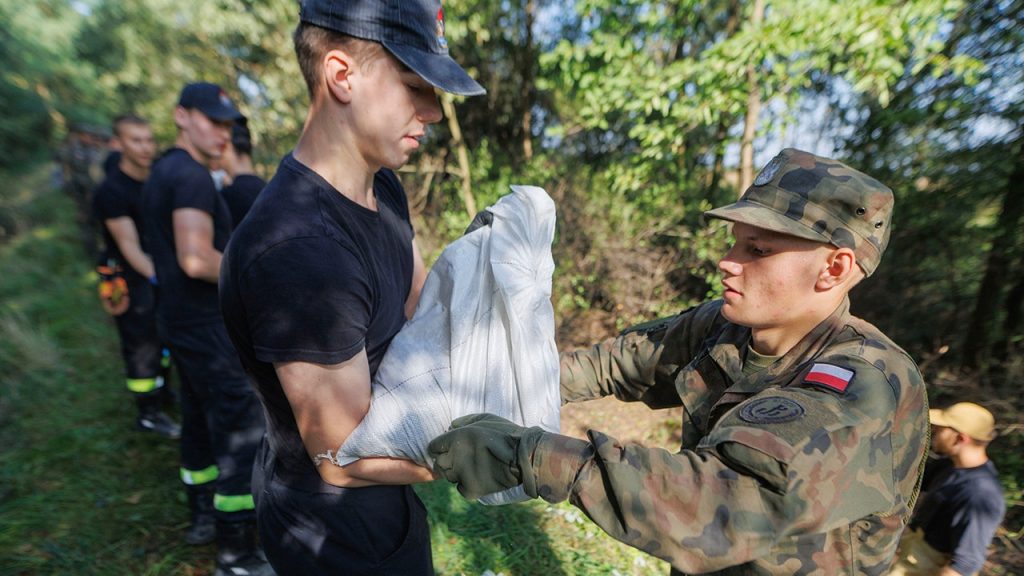Soldiers and firefighters in Central Europe have been working tirelessly to deal with the devastating effects of heavy flooding that has occurred in recent days. This has impacted countries such as the Czech Republic, Slovakia, and Austria, causing approximately 20 reported deaths. Efforts have been made to reinforce river embankments, deliver food and water to isolated communities, and address looting that has occurred in some areas. Reports have emerged of casualties in Romania, Austria, the Czech Republic, and Poland, highlighting the extensive impact of the flooding across the region.
Online influencers have played a role in mobilizing thousands of individuals to demand change in Hungary following the resignation of the country’s president. As the floodwaters recede in some areas, concerns remain about potential looting, prompting authorities to crack down on perpetrators. Military forces have been deployed to support law enforcement efforts, with soldiers equipped with night vision and thermal imaging devices to aid in the response. Cities such as Budapest, Hungary, and Wroclaw, Poland, are preparing for potentially worse flooding in the coming days, with efforts underway to reinforce barriers and protect vulnerable areas from rising waters.
In Hungary, volunteers have joined soldiers in filling sandbags to strengthen barriers along the Danube River in Budapest. Lower quays in the city have been closed in anticipation of flooding, with other precautions being taken to protect landmarks and infrastructure. Similarly, in Wroclaw, Poland, emergency responders are working to bolster river embankments with sandbags as residents brace for the impending flood wave. Despite conflicting forecasts from meteorologists, the government has declared a state of natural disaster in southern Poland and is taking steps to mitigate the impact of the flooding.
In Nysa, Poland, residents came together to form a human chain to pass sandbags and protect their town from rising waters. The mayor expressed gratitude for the community’s efforts and announced that the city center had been saved from flooding. In Bratislava, Slovakia, officials reported that the Danube River had peaked and would gradually decrease in level, although damage had occurred to infrastructure such as tram lines and the city’s zoo. The Czech Republic has also been grappling with the aftermath of severe flooding in its northeast regions, with billions of euros in damage expected. Efforts are being made to assist with clean-up and restoration efforts, including support for regional elections impacted by the disaster.
Overall, the widespread flooding in Central Europe has led to significant loss of life, property damage, and community disruption. Governments across the region are working to mobilize resources, support affected communities, and mitigate the ongoing impact of the natural disaster. The resilience and solidarity displayed by residents, volunteers, and emergency responders in the face of adversity highlight the strength of unity in the face of crisis. As recovery efforts continue and communities rebuild, the region will need ongoing support and resources to address the long-term effects of the flooding and ensure the safety and well-being of those affected.


